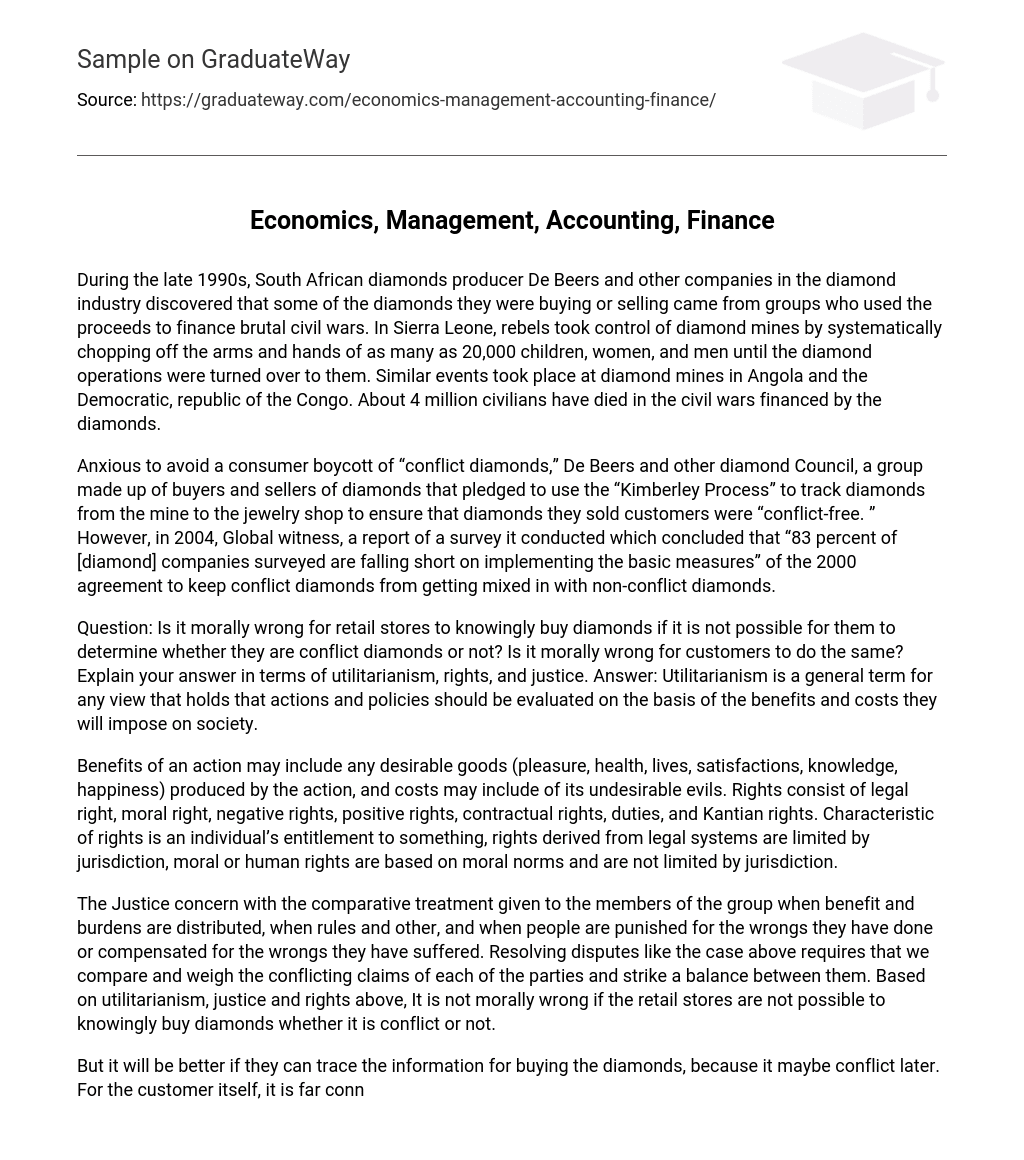During the late 1990s, South African diamonds producer De Beers and other companies in the diamond industry discovered that some of the diamonds they were buying or selling came from groups who used the proceeds to finance brutal civil wars. In Sierra Leone, rebels took control of diamond mines by systematically chopping off the arms and hands of as many as 20,000 children, women, and men until the diamond operations were turned over to them. Similar events took place at diamond mines in Angola and the Democratic, republic of the Congo. About 4 million civilians have died in the civil wars financed by the diamonds.
Anxious to avoid a consumer boycott of “conflict diamonds,” De Beers and other diamond Council, a group made up of buyers and sellers of diamonds that pledged to use the “Kimberley Process” to track diamonds from the mine to the jewelry shop to ensure that diamonds they sold customers were “conflict-free. ” However, in 2004, Global witness, a report of a survey it conducted which concluded that “83 percent of [diamond] companies surveyed are falling short on implementing the basic measures” of the 2000 agreement to keep conflict diamonds from getting mixed in with non-conflict diamonds.
Question: Is it morally wrong for retail stores to knowingly buy diamonds if it is not possible for them to determine whether they are conflict diamonds or not? Is it morally wrong for customers to do the same? Explain your answer in terms of utilitarianism, rights, and justice. Answer: Utilitarianism is a general term for any view that holds that actions and policies should be evaluated on the basis of the benefits and costs they will impose on society.
Benefits of an action may include any desirable goods (pleasure, health, lives, satisfactions, knowledge, happiness) produced by the action, and costs may include of its undesirable evils. Rights consist of legal right, moral right, negative rights, positive rights, contractual rights, duties, and Kantian rights. Characteristic of rights is an individual’s entitlement to something, rights derived from legal systems are limited by jurisdiction, moral or human rights are based on moral norms and are not limited by jurisdiction.
The Justice concern with the comparative treatment given to the members of the group when benefit and burdens are distributed, when rules and other, and when people are punished for the wrongs they have done or compensated for the wrongs they have suffered. Resolving disputes like the case above requires that we compare and weigh the conflicting claims of each of the parties and strike a balance between them. Based on utilitarianism, justice and rights above, It is not morally wrong if the retail stores are not possible to knowingly buy diamonds whether it is conflict or not.
But it will be better if they can trace the information for buying the diamonds, because it maybe conflict later. For the customer itself, it is far connections for the customer, if they buy means that it is legal because it has been consider for cost and benefit refers to from many aspects. It has been fulfill legal system if the customer has been paid based on rights. But to prove all that kinds of justice, rights and utilitarianism, it will be good if knowingly buy good things from good vendors.





